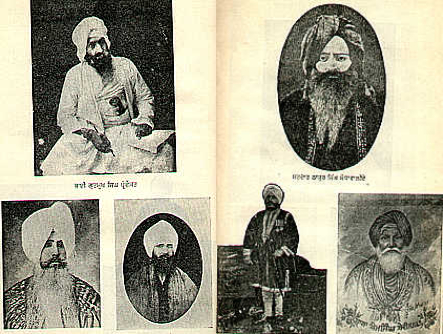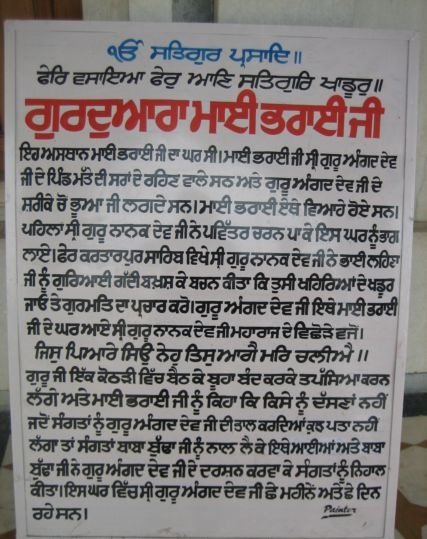BISHAN SINGH, SANT (d. 1973), holy saint most of whose life was spent in works of seva, raising of buildings by labour volunteered by devotees, at different shrine sites, came of a well to do Sindhi family. Nothing is known about his early life except that his parents were Sahajdhari Sikhs and that he was in government service when he came in 1940 to the Punjab on a pilgrimage visiting Sikh places of worship and saw Sant Gurmukh Singh of Patiala, then engaged in massive works of seva reconstructing the shrines and sacred pools at Khadur Sahib and Goindval. Bishan Singh was so impressed by the piousness, humility and devotion of Sant Gurmukh Singh and of the large number of Sikhs volunteering their labour that he resigned his post in the government, gave away his personal belongings and joined the holy company.
BROWN, JOHN, alias RICHARD POTTER, an Englishman, who, deserting the East Indian Company`s service in the Bengal artillery, came to Lahore and joined the Sikh artillery in 1826. He was later promoted colonel and placed in charge of the artillery depot at Lahore. During the first Anglo Sikh war, he acted as a British spy. Just before the battle of `Aliwal, he went to Ludhiana and offered his services to his countrymen.
BUDHMOR, commonly called Budhmar, is a village in Patiala district, 8 km southeast of Ghuram (30°7`N, 76°28`E). It is sacred to Guru Tegh Bahadur, who visited it during one of his journeys through this region. A Manji Sahib, constructed by Maharaja Karam Singh (1798-1845) of Patiala, was located east of the village. It was replaced by a new building raised in 1980 by the followers of Sant BabaJivan Singh. It consists of a square divan hall with a domed sanctum, and other ancillary buildings. The shrine, known as Gurdwara Manji Sahib Patshahi Nauvin, is affiliated to the Shiromani Gurdwara Parbandhak Committee and is administered by a local committee.
BUTA SINGH, DIWAN (b. 1826) .journalist, printer and one of the last employees of the Sikh royal household, was born the son of Gurdial Singh at Lahore in 1826. He was a man of wealth and influence, being the owner of a chain of printing presses. In his earlier career, he had served as diwan or household minister to Maharani Jind Kaur in whose cause he had attempted to raise disturbances just before the second AngloSikh war for which he was deported from the Punjab to Allahabad where he was kept a political prisoner for seven years. In 1866, he set up Aftabi Punjab press in Lahore and issued in Urdu a fortnightly law journal, Anwar ulShams.
BANDA BAHADUR GURUDWARA, NEW DELHI In every faith and every land, whenever men become corrupt, despotic and tyrannous, God sends a scourge like me to punish them and teach them a lesson". Thus spoke Banda Singh Bahadur a great Sikh hero in reply to a question put to him by Mohammad Amin Khan, the author of Siyarul-Mutakherin when he went near him to ask as to why he was waging war against Mughals. Banda Bahadur was tortured to death by order of Mughal King Farrukh Siyar on June 19, 1716 in Mehrauli near Qutab Minar. Earlier he was taken through the streets of Delhi to the shrine of the Sufi Saint Khawaja Bakhtiar Kaki in Mehrauli. He was paraded around the tomb of Emperor Bahadur Shah.
Bhagwant Singh (1926 - ) an eminent punjabi poet, was born in 1926. His poetry stems from the inhibited experiences of a frustrated middle class, and the axis which makes him conscious of the hollowness and hypocrisy revolving round it. He does not use the traditional regular metres but his lines consist of ironical phrases and figures which have their own poetic rhythms. His irony and satire have, however, no fixed focus. His view of society is negative lacking any specific direction.








